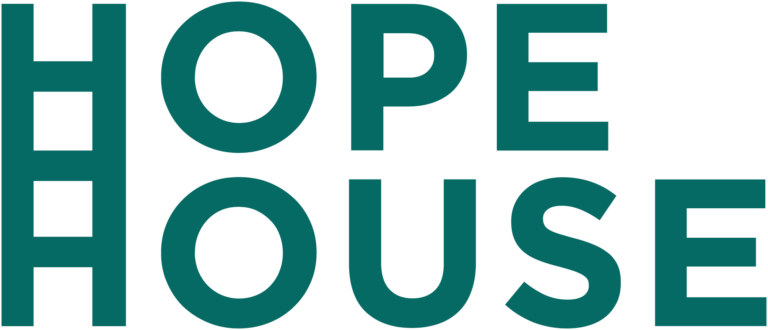ABOUT HOPE HOUSE
Hope House is a new facility offering an alternative to incarceration through treatment, education, and supportive services.
Hope House on Crotona Park (HHCP or Hope House), anticipated to open in April of 2026, is an Alternative to Incarceration (ATI) for people living with Serious Mental Illness (SMI), including those with co-occurring Substance Use Disorders (SUD), accused of felony level crimes. Hope House will offer a longer-term (one-to-two year expected length of stay) residential program for 8 men and 8 women operated by the Greenburger Center for Social and Criminal Justice, Inc., (GCSCJ), with 24/7 residential and security staff and an on-site treatment program provided by an outside provider Monday – Friday.
Hope House is a first-of-its-kind model in the nation because of its use of bond agency authority to provide security in a voluntary ATI program and its co-located integrated residential and therapeutic treatment services.
Hope House will serve anyone ages 18 and older, residing in New York City’s five boroughs at the time of their arrest, though at the request of the local Community Board, Hope House will not accept people accused of crimes of a sexual nature. Preference for up to 4 beds will be given to people living in the Bronx at the time of their arrest as per a request of local Community Board.
A Voluntary Program for those Determined Mentally Competent to Participate
Admission to Hope House is on a voluntary basis with advice of counsel and consent of the Court. In cases where sentencing law mandates incarceration, Hope House will require district attorney (DA) consent before enrollment including acknowledgment and agreement by the DA that such charge will be dropped and replaced with a lower charge including agreement that a non-in carceral sentence should be imposed, where the terms of the Plea Agreement are met.
A client’s competency to make this voluntary decision will be carefully considered. A client not able to demonstrate a rational and factual understanding of the elements and consequences of the decision and the services offered at Hope House will not be enrolled in the program. Clients actively violent or threatening violence are also not eligible.
The Diversion Process
Once determined competent, a client’s enrollment occurs at the point of a Court ordered Plea agreement, including the following five components:
- A plea of guilty to the agreed upon charge(s), with sentencing adjourned until either: completion of the mandated ATI residential treatment phase or early discharge from the ATI;
- Imposition by the Judge of “nominal bail” pursuant to CPL 510.10(5), as a condition of the Plea and release to the ATI, to be enforced by an outside bond agent or other authorized person specifically trained by Hope House;
- A commitment by the Court to a sentence requiring no further incarceration upon successful completion of the ATI program (a sentence could include a period of post release supervision, including, where appropriate, a term of probation);
- A stated sentence of incarceration that will be imposed if the client does not successfully complete the program, which sentence will be no greater than that which would have been imposed in the absence of program participation; and a commitment that, should the client be unable to successfully complete the ATI program, the sentence that the client receives will be reduced by one day for each day that the client spent in treatment.
Treatment Philosophy & Licensure
Program and residential staff will provide evidenced based work-ordered-day programming, mindfulness and meditation, violence reduction, restorative justice programs, and life skills training, including job/education services. Mental health and substance use disorder clinic services will be provided on site in a designated treatment space. Physical health care services and some additional mental health care will be available via a mobile unit.
Re-Entry into the Community
Re-entry planning will comply with NYS Office of Mental Health licensure requirements and will begin at the time of enrollment. The goal of Hope House residential and therapeutic programming will be stabilization of any substance use disorders, management of psychiatric symptoms, and the treatment of underlying mental and physical disease. Upon stabilization, residential program staff will work to instill life and where possible, job skills which are essential to successful re-entry into the community.
Beginning in the second year of a client’s stay, or as soon as possible, residential staff and a re-entry coordinator will work with clients and nonprofit organizations with extensive community experience with Hope House’s target population to provide support in three major areas: 1) evaluation, motivational counseling, referral to residential programs; 2) family education, support, and reconciliation services; and 3) re-entry/recovery support and case management service.
FAQ
Hope House will serve people accused of a felony level crime and living with serious mental illness with or without a co-occurring substance use disorder. People convicted of a crime and already sentenced to prison are not eligible for Hope House. Hope House is a voluntary, Alternative to Incarceration (ATI) residential program open to defendants prior to trial or conviction.
Yes, Hope House will serve up to 8 women and 8 men at a time.
In addition to the requirements outline in FAQ#1, potential Hope House clients must be 18 years or older and live in one of the 5 New York City boroughs at the time of arrest to be eligible to enter Hope House. With respect to 4 beds, preference will be given to individuals living in the Bronx at the time of their arrest where a bed is available and more than one candidate is being considered, one of whom is a Bronx resident. This preference reflects the fact the Hope House on Crotona Park is located in Bronx, New York.
Individuals accused of sex offenses or who are actively exhibiting violent behavior are not eligible for admission to Hope House. People accused of misdemeanors only are also not eligible for Hope House. A violent felony charge does not automatically exclude an individual from admission. Each case will be examined on a case-by-case basis, but at no time will violence or the threat of violence be tolerated at Hope House. Violence or the threat of violence, are grounds for immediate expulsion from the program.
A Hope House resident must:
- be accused of at least one felony charge;
- have a serious mental illness with or without a co-occurring substance use disorder confirmed by a mental health assessment;
- be competent to stand trial, understand the nature of a Plea agreement, and voluntarily sign the Plea agreement with the advice and consent of an attorney and with permission of the Court and the Prosecutor; and
- voluntarily ask a Judge to set “nominal bail” as a condition of diversion to Hope House at the time of entering the Plea agreement.
Typically, up to 2 years.
While at Hope House, clients will receive 24-hour residential care. Mental health treatment will be offered by an outside clinical provider. Clients will also receive daily program instruction in life management skills through a work ordered day schedule in a modified therapeutic community setting.
While clients will be allowed to leave the premises with a peer or other staff, during the first 6 – 8 months of stay, a court may condition a participant’s release on their voluntary commitment to remain on the premises until staff are sure the client will not engage in activities that are harmful to themselves or others, such as frequenting high crime areas or engaging in other criminal activity, particularly activity harmful to recovery and treatment.
Hope House is not a private prison. Private prisons are illegal in New York State. In consultation with their defense attorney, a person may voluntarily decide to enter Hope House. If a client wishes to be discharged from the program, Hope House staff will make arrangements to return the client back to court for further proceedings pursuant to the client’s Plea Agreement.
No. Hope House on Crotona Park it a project of the Greenburger Center for Social and Criminal Justice, Inc., a 501c(3) not-for-profit. All staff will be privately hired and trained.
Clients will never be locked in a room and there are no cells on the premises. The City’s Building Department has reviewed and approved the fire escape plans for Hope House. Doors to the outside of the facility will be locked at all times, but emergency escape bars will be placed on all doors, allowing emergency egress in case of fire. Once pushed, the emergency release bar will unlock the door within 15 seconds, however, during a fire, the doors open automatically without a 15 second delay as per the NYC Building Department.
The Greenburger Center of Social and Criminal Justice, Inc., (GCSCJ) will partner with an outside clinical provider to provide mental health treatment and substance use disorder recovery services. The Hope House treatment model will be based on Argus’ modified therapeutic community model. Residential services will be provided by the GCSCJ based on a work-ordered-day schedule inspired by the Fountain House clubhouse model.
Security staff will be on the premises 24 hours a day. A bond agent or someone with the ability to take a client into custody will be on call off-site to provide these services as necessary. Bond agents will be fully trained in Crisis Intervention Team (CIT) training and only called if a client leaves the facility or acts in another manner in contravention of a court order and must be returned to court pursuant to the court order. In these circumstances, the goal would be to take the client into custody without resorting to issuance of a bench warrant by a court for arrest of the client by the police. Where the client becomes violent or threatens violence, security staff may find it necessary to contact the local Sheriff’s Department or police precinct to effectuate and arrest on-site and/or transport the client to court as necessary and proscribed by the court. Security staff will be fully trained to manage this population.
The judge with jurisdiction over the case will determine whether a client should be discharged from the program for failure to adhere to the terms of the Plea agreement, except in cases where the client is violent, threatens violence or presents an immediate danger of serious harm or injury to self or others. Where a client is violent, threatens violence or presents an immediate danger of serious harm or injury to self or others, the Program Director will determine whether the client must be discharged from the program and will notify the court within one business day of such decision. Where a client is discharged by the program director, discharge protocol will be followed to the maximum extent practicable, given any requirements or responsibilities placed on the client or Hope House per the court order.


